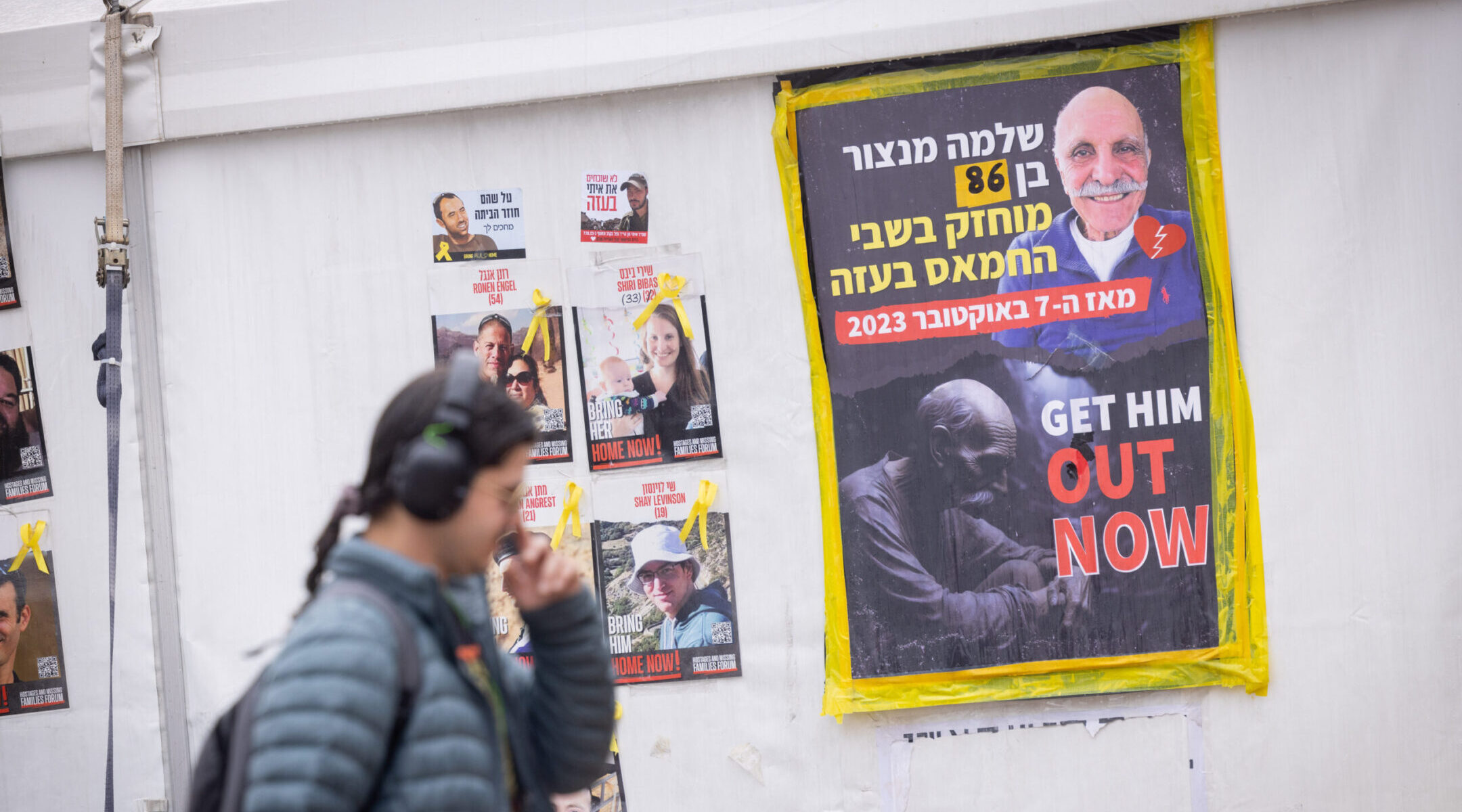Shlomo Mansur, oldest hostage in Gaza, was killed on Oct. 7, Israel announces
Mansur moved to Israel as a child after his family fled their native Iraq

Visitors at Hostage Square in Tel Aviv pass a sign showing Shlomo Mansur, the oldest Israeli hostage in Gaza, Feb. 11, 2025. (Miriam Alster/Flash90)
(JTA) — The oldest hostage in Gaza is not alive, Israeli authorities announced on Tuesday.
Shlomo Mansur was killed 16 months ago, during Hamas’ attack on Israel on Oct. 7, 2023, and his body was taken to Gaza, Israeli officials said they determined after assessing intelligence data gathered in recent months. He was 85 at the time and is survived by a wife, five children and 12 grandchildren.
Mansur, who moved to Israel as a child after his family fled their native Iraq following the 1941 anti-Jewish pogrom known as the Farhud, was a longtime member of Kibbutz Kissufim. Eight other members of the kibbutz and six foreign nationals who worked there were killed during Hamas’ attack.
“This is one of the most difficult days in the history of our kibbutz,” the kibbutz said in a statement. “Shlomo was much more than a community member to us — he was a father, a grandfather, a true friend and the beating heart of Kissufim.”
The announcement comes during a ceasefire in which 33 hostages, including Mansur, are to be released. After the ceasefire began, Hamas said eight of the 33 hostages on the agreed-upon list were dead but did not specify which ones. Sixteen living hostages from list, as well as five Thai hostages who were not on the list, have been released since the ceasefire’s start in January. Its fate is increasingly tenuous, with Hamas announcing Monday that it would delay this week’s planned hostage release and Israeli Prime Minister Benjamin Netanyahu reportedly refusing so far to negotiate a second phase.
U.S. President Donald Trump said late Monday that “all hell is going to break out” if the remaining 76 hostages, of whom about 30 are thought to be alive, are not released by Saturday.















